|
A DISH BEST SERVED STEALTH. The first time I played Dishonored was on the PS3. It was the first game I ever played on the PS3 when I bought the system--this was shortly after it had pumped out The Last Of Us, but all I wanted to play was this Dishonored thing I had heard such wondrous things about. I played it, but promptly made a decision that I hated it after only a few days. 6 months later, playing it again on a PC, I was completely enthralled; I loved it and still love it. Fast forward to Dishonored 2, and I fell into the same trap. Ignoring the basics while being too passive, I forgot what made the original game fun for me: going fast and loose, yet smart and adaptive. Dishonored 2 is a game that kind of requires 2 playthroughs, much like its predecessor--though for slightly different reasons. Whereas you might want to try a second build in the original game, D2 dares you to try a completely different character with unique powers for your next go-around. Dishonored 2 follows the same quasi-whalepunk setting mishmashed with the occult voidmasters and Jets v. Sharks gang drama of the first game, but trades in the rat plague for evil mosquitos and political villains for outright witches and Thomas Edison. In this outing, Lord Protector Corvo and his not-so-secret daughter-turned-emporess Emily Kaldwin are victimized by DLC Villain Delilah Copperspoon, who is essentially a lich from Coyote Ugly. Once you pick your character, the other is turned to stone while you flee the kingdom of Dunwall in search of more information on your mystic adversary. Most of the game now takes place in Karnaca, Corvo's birthplace; Karnaca is a bit different from the cold stones and drippy streets of Dunwall in that there's a broad ocean in the distance, opulent mansions, towering mining towns, and railway hamlets with special little trolleys above the streets. Tallboys aren't around anymore, but there are more than enough elite guards and gangsters, smarter and more numerous than before. The scenarios and stages themselves are brilliantly realized in Dishonored's aesthetic, which has a bit of an exaggerated impressionist twist. Overlooking the in-progress vistas of the mining town or marveling at the extravagence of the Jindosh Mansion, I was entranced by every corner of this game; the detail is just breathtaking and absolutely kicks the ass of last year's ZeniMax game, Fallout 4. I'm thinking Todd Howard's team should take notes and move their engine to what Arkane is using, simply due to what is possible in terms of physics, as well. As far as performance goes, I'm sure everyone is aware the PC release had a rocky start, but the PS4 version has been pretty adequate. There are some slowdowns when using a special Timepiece item later on, as well as random hiccups, but for the most part I've been impressed with how stable things are considering this is a heavily modified last-gen id tech (Void Engine, as they call it) running on duct tape and a prayer. Gameplay is what you'd expect from a Dishonored sequel, as it's once again a compromise between hardcore stealth and brief bursts of using your witchcraft to do anything from control rat hordes to pulling dudes with a symbiote arm to linking people together in a ridiculous domino effect. For those of us that need familiarity, there's Corvo with all his previous skills intact--some of them boasting new upgrades. If you want to go in with a completely new bullpen of powers, Emily has some truly fascinating abilities, ranging from the aforementioned domino and symbiote arm to a fun doppelganger trick, a totemistic mesmerize, and a murderous shadow-walk. I admit that spreading out my ability points too much lead me to get frustrated; being a jack of all trades but master of none may not always work out. Upgrading Far Reach to pull and pick off enemies from a distance changed the game for me, just as upgrading Doppelganger to the max creates an army of mirages that completely baffle the opposition. It's in this system that replays are earned, as there are so many incredible combos and playstyles to try. The story itself may clock in at about 9 missions, but with each one capable of sucking you in for 2+ hours across multiple areas, and the possibilities of using multiple strategies on 2 different characters, you'll easily top 30 to 40 hours alone messing around. Admittedly, I had some sour moments in my initial playthrough of Dishonored 2: getting lost in the Clockwork Mansion and then accidentally sequence breaking the game to the point of defeat in the Stilton Estate lead to some frantic moments where I regrettably went higher on the Chaos spectrum than I would have liked. Even with moments of fleeting frustration, the uniform excellence in level design shines so goddamn bright; the Clockwork Mansion still holds so many secrets and passages to victory never thought possible. The nailbiting encounters with witches in their terrifying manor still stay with me, as do the sneaking into various factions' strongholds before the Stilton mission and the dilapidated state of the grim Addermire Asylum. Dishonored 2, much like DOOM and Titanfall 2 this year, is remarkable in how tightly constructed and contained its overall storyline is--every level is a very well-crafted snowglobe just itching to be shaken up and turned upside down. Like the previous game, Dishonored 2 is a masterclass in chaos and stealth in harmony, providing you with double the options and beyond this time around to maximize your creativity and fun. It's yet another masterful outing by Arkane and friends, and one that I'll be replaying even more than most games on my year-end list. 9/10 BALD IS BEAUTIFUL. SO IS MURDER. HITMAN is the soft reboot of the old assassination simulator by IO Interactive from the days of yore. Previously a kind of murderous sandbox containing multiple ways to achieve a bloody goal, Hitman's franchise took a small dive when Absolution was released a few years ago, turning a devious craft into a stealth-based shooter. Absolution looked and operated great, but completely destroyed much of what even made the series great; maybe a fourth of the game's missions actually had you plotting hits, and the disguise mechanics were dreadful. Hitman was, for all intents and purposes, dead with a bullet in its head. Square Enix and the folks at IOI resurrected 47 for an entirely new adventure, and have decided to run the game through a server-based, episodic structure. The reasons behind this release model are mainly about time; the developers have more freedom to design and test each huge stage individually, and players have more time to dive into the richness of said stages. Hitman, I've discovered, is one of the best representations of what even makes a game a true "sandbox" experience. Within each location in the first season of Hitman, you begin with a very basic premise: assassinate a number of high-value targets (almost always 2) and make your escape. From there, it's up to you to make the use of a variety of tools and atmospheric anomalies to accomplish the mission. The game offers many Opportunities that only appear in your queue when you overhear interesting factoids or see useful items in the environment--you're encouraged to explore as much as possible and take note of literally everything in your surroundings. IOI has done an excellent job building each stage, providing thousands of NPCs with unique dialogue to eavesedrop upon, with even more secrets and narratives than you'd imagine. Most of your prime Opportunity routes will stem from a waiter mentioning maybe a certain recipe, or a guard talking about a chore that needs doing, or an auction that you could potentially crash by stealing a keycard or even impersonating someone. Although each mission comes baked with around 15 or so Opportunities, the Challenges within each stage number around 100 or so, pressing you to be even more creative with your assassination and discoveries. Can you find the vampire costume? How about killing both targets with a chandelier at once? What if you attempt to finish the job even after a safe-room alarm is activated, making things even more difficult? The possibilities that are insinuated are wide-reaching, with a good number of them probably getting ticked off the list just by your own experimentation. Hitman begins with a literal soundstage recreation of two easy missions, and then begins to send you everywhere from Paris to Italy to Morrocco. With 6 unique main locations and 3 bonus missions, Hitman goes for extreme quality over quantity--and the quality is superb. Hundreds of NPCs have been painstakingly voiced with reams of dialogue and interactions, the environments and structures look beautiful and complex with dozens of layers to investigate, and the number of interactive objects to be used for potential kills is staggering. The game looks fantastic and mostly runs at 30 to 50 FPS on console, which rarely dips and manages to keep up the pace as you skulk around. The amount of time I spent on just 3 stages alone, discovering new things and unlocking even more starting points and tools, was ridiculous. Although the game's world at large is generally pretty good in terms of AI and real-life behavior, there are moments that crop up that may do anything from amuse you to pissing you off. One opportunity I followed had me accidentally bump into a bystander by accident, leading to them labeling me as Suspicious long enough for a few cops to fucking shoot me in the head for no discernable reason. The save system lets you quicksave almost anywhere just in case these moments do crop up, but there have been a few instances that inconvenienced me due to stupid shit mentioned above. Hitman does have detractors mainly due to the "episodic" nature of the package--a facet that doesn't even really impact the overall quality of the levels being churned out. If you truly can't get over the fact that a mission-based game is giving you parts a la carte--which adds up to a "complete" value in terms of the monies involved--then try to see it this way: at any point you can stop paying for the experience, and walk away without having spent $60 on a full package. Or, you can just pick and choose the levels you like. In any case, after seeing how creative Season One has been, I don't see any reason why I shouldn't pay upfront for a second or third season. Another online-only, piecemeal game--Destiny--is still played and defended in droves so I really don't see how IO Interactive flubbed anything with their business model, one which was probably designed to allow more focus and testing on each playground. In short, if you really can't stop weeping over what is an actually successful "games as a service" model, feel free to keep posting about it on NeoGAF until you eventually break down yet still buy FF7's 3-part remake anyway. Hitman's structure is something that succeeds enormously in spite of itself: a serverside, episodic experiment sent forth by piecemeal-enthusiast Square-Enix. IOI has done everything in its power to put a decade of experience towards creating the ultimate Hitman game, one which has been tailor-fit for modernt times with special Elusive target updates, patched content, and seasons worth of content. Season One has been an absolute thrill to play with, so consider this the vote of confidence towards any new Hitman stages slated for the future. 9/10 After 2 and a half years of waiting for No Man's Sky to jettison into our hands and save the world forever and ever amen, it's finally here, and boy is it boring. Look at me, I can barely write an introduction for this space sim about collecting space trash and chocolate pearls. No Man's Sky is, all in all, a very boring "point A to point B with a notepad, documenting bullshit" situation. You start NMS with a laundry list of shit about fixing your ship. You mine things, as you will ad infinitude in this game, firing a laser into rocks and minerals to get crafting materials. You do this over and over so you can make energy or life support fuel for your suit and ship, both of which are things that guzzle resources. So you explore the random planets, looking at weird animals and weird plants and strange weather, looking for shit to continue your journey and move onward. You will eventually find lone aliens at small trailer park outposts, with whom you can trade doodads for more items, new ships, or artifacts. In the environment, you can found strange language stones and learn more about the 3 races you commune with. When you're done fucking around the planet, you can launch off and fly around to the next one, doing the next minuscule objective to craft or find another thing. This is what you do in No Man's Sky. I've heard people say this is a chillout game and you can listen to a podcast or whatever while playing, but I can't really equate "chilling out" with "incredible tedium." Moving around the planets is painful, as your plodding pace and miserable jetpack stretch out any activity undertaken. You can expect to amble all over planets, but no matter how initially interesting a planet seemed at first sight, I was always brought back to reality once I took a tour of the area. Truthfully, there is barely anything to "explore," as people are wont to say. There's legit better exploration in Witcher, Skyrim, Xenoblade, MGSV, you name it--all being games where new and engaging shit actually happens. The procedural generation in NMS is a hindrance that hurts the overall experience, as the random planets will all have common things to unplumb and uncork again and again. I was especially frustrated with the godawful inventory, which kept reaching its pitiful limit. Sure, you can upgrade your cargo or suit, but these things take time that I'm already using just doing *whatever*. I'd go further into the various elements and items you mine and collect, but who gives a fuck about the differences when they amount to "one fuels shit, another shields shit, and another crafts gun shit." One of the most disappointing things in this game is that the wildlife AI is literally dipshit level. Every animal adapts to the same arbitrary running away in panic, or angrily bumping into you with aggro. Having them all be dependent on procedural generation also sucks; I just see chicken head on cow body, lizard head on cow body, just this parade of mix and match shit. Even the zoos and random wildlife in MGSV were moderately interesting; here, the animals might as well be cardboard cutouts to modestly distract you while you trundle across a shitplanet towards your next whatever who gives a fuck objective. Am I disappointed there isn't more to do? Sure. I came in with no expectations, save for the fact that my appetite for exploring cool worlds and secret caverns would be satiated. I've landed on a handful of utterly joyless plazas, watched as nothingness yawned and folded up empty chasms, sighed as flat vistas rolled on for miles. I've landed my ship, activated a beacon, and groaned as I realized I couldn't reach anywhere without wasting another launch of my ship thrusters. Even the abhorrent Xenoblade Chronicles X offered quick travel and several swift modes of locomotion; NMS has you choose between the on-again off-again dance of using your ship, or trekking endlessly to get anywhere or do anything. Don't even get me started about "combat" in this game--there is none. It's the most rudimentary shit you could possibly shoehorn in, and the game's pacing and UI is completely unsuited for any kind of dogfighting or gunplay. I'm sure in later updates, there will be a bit more content, but only just enough to layer on top of an already tasteless cake. However, it's not even worth the salt to cry about something like NMS when there are other, better games coming out that will render my memories of this one void. I don't even have some kind of venomous hatred for "what might have been" like Evolve or Just Cause 3, partially because NMS is what it is, and the hype surrounding was the fault of the masses. What did we learn from all the previews over the years? Mostly nothing, as evidenced by how shocked people have been at the emptiness. Still, NMS has already made shitloads of money, putting itself in the realm of The Division, Watch Dogs, and Destiny for best IP launch. Naming those other 3 games is all I need to say, given their critical standing and longevity. If you like playing NMS and digging for treasures in the crust of these planets, go ahead and go nuts--I won't vilify you. However, when it comes to open-ended games, I've played enough of them to know that you have to bring your A-game; Witcher 3 was an example of bringing an A+ game, meticulously crafting hundreds of new diversions, missions, and characters. You can even get away with relatively standard maps if the gameplay is excellent, which is what you experience in MGSV and its emergent strategies. NMS, in my opinon, offers neither exciting moments of discover nor any kind of dynamic gameplay; it is merely a skeleton of a greater idea, hidden almost as far as the nearest galaxy as you try in vain to race across the cosmos towards something grander. The ability to shock and surprise players can be found in Bloodborne. Tightly-constructed hubworlds and mission-oriented dioramas can likely be found in the future Deus Ex and Dishonored games. Almost any other critically lauded universe can do more than NMS has. Ultimately, I can't justify wasting my time with such a mediocre effort. Space may be an endlessly curious entity, but No Man's Sky offers very little in the scope of providing interesting questions--or, at the very least, answers as to why I should play it. 5/10 Overwatch is essentially the spiritual successor to the throne that Team Fortress 2 has been sitting on for almost a decade. TF2 was a game I didn't even start playing until my last year of college, around 2011 or so; it was an experience that sunk its hooks into me and never let up, leading to over 400+ hours spent with the manic class-based cartoony shooter. I loved TF2 dearly, even if time has passed and I haven't played in a year or so. How do you follow up such a massive experience that has been subsisting on stupid hat cosmetic DLC and weapon crafting forever? You don't, because it still makes money constantly for Valve. The question remained: could anyone usurp the razor-sharp quality and longevity that Valve had cultivated in their team-based FPS? Blizzard, with their new Overwatch project, was probably one of the only companies fit to meet the challenge. There was at least precedence in multiplayer expertise with their RTS, MMO, and now MOBA genre forays--but a first person shooter would be unlike anything they had ever attempted. What a wonderful surprise it's been that Overwatch is not only a huge success, but might represent the next dose of crystalline excellence that TF2 once provided. Although Overwatch is cut from the same cloth as TF2's objective centric matches and class-based roster, the main differences come in the form of just how that roster has been developed. As opposed to the 9 classes and the multitude of loadouts that TF2 offers, Overwatch sets everything in canonical stone--there are no customizations for weapons or abilities. Each characters brings their own unique strengths and weaknesses, though in ways that go far beyond just swapping guns. Warping, climbing, grappling, and jet-boosting offer a huge degree of verticality that isn't the norm in most games of this caliber, and as a result the maps feel that much bigger and ripe for possibilities. Although characters have been broken up into typical Offense/Defense/Support castes, everyone feels fresh and fun to toy with, no matter the match stipulation. One thing I do appreciate is how the selection screen for teams will offer suggestions, telling you if there's a gap for a Tank character or if you have too many Snipers. It's no guarantee that people will swap characters, but it's a nice piece of advice to have if you want to shore up your team vulnerabilities. The characters themselves in Overwatch are quite fun and interesting. Blizzard did a fantastic job creating vibrant, colorful avatars with clear jobs on the field and likeable personalities. Possibly my only complaints lie within more passive roles like turretman robot or turretman builder, but both of them can be countered given the right distance or flank style. All 21 original characters not only have very easily recognized silhouettes, but also have distinct voices which warn you of incoming threats. Characters automatically commune with you when turrets are in view or when they get destroyed, as well as when their ultimate attack is at hand. Hell, even more useful are the audible lines from the enemy that serve as fair warning for a number of their attacks. It's within little things like this that Blizzard went beyond the norms of team-based shooters to provide small quality-of-life touches. Overwatch ships out with quite a few maps, most of which have an Attack/Defend scenario, a payload guidance, or a straitlaced KOTH. There are a few maps that combine a point grab with a 2nd-phase payload, too. Although the number isn't huge, they're all unique enough to provide enough fun even when you've cycled through them more than enough times. It's true that we probably need a lot more maps, but I'm not too worried about the future; it's a Blizzard game with the promise of free maps and characters as long as the ride lasts, and with the recordbreaking launch it had, there will surely be more content on the way. As of this writing, I haven't yet tired of the stock maps the game has launched with, and still need to learn the greater intricate shortcuts each has to offer. It's been a few months since Overwatch released, and the most impressive quality by far has been Blizzard's response to various quirks of the game. Within a small span of time, many characters have seen great improvements, nerfs, and rebalances that have made the game far better than it was at release. We've even had the chance to try a new sniper healer hybrid character, Ana--and more maps/costumes are well on the way. To tell you the truth, I'm stunned by the workrate the Overwatch developers; seldom do games get such a quick and intelligent level of support, but I suppose it shouldn't surprise me too much--this is, after all, this is the company that still patches even Diablo 2, and brought Diablo 3 back from the grave. Blizzard has made it clear--through the gigantic marketing campaign, hard-pumped updates and patches, and consistent monthly content--that Overwatch is their golden goose fit to stay in the cradle of profit. Given how large the playerbase (and sales) have been not only on PC, but the console generation as well, I'd say it has a very long and fruitful life ahead of it. By year's end, I expect it to look even bigger and better than the time of this writing. Where others have failed, Blizzard has succeeded in their creation of the Next Big Thing. This game owns. 9/10 At the beginning of the year, DOOM's gutsy reboot was on the laborious road towards failure; the multiplayer beta had received lukewarm reception, and it had been reported that review copies would not be sent out to game websites. All signs pointed to id Software shaking itself free from a potentially bad release--and so, it was let loose into the wild. The unthinkable happened: through the initial word of mouth, DOOM was being praised as a magnificent and chaotic spree, hearkening back to what made the original games before Doom 3 so mindlessly fun. Fast forward to the present, and even the noted critics have agreed that DOOM is indeed a kind of triumph--not only due to what it had going against it pre-release, but because it had the temerity to grind against typical linear cover-laden FPS games. Having little experience with the original Doom games myself, I decided to see what this was all about. I'm pleased to say that DOOM has offered some of the best fun I've had in a game in quite a while. The crux of DOOM's excellent gameplay is within its maddening tempo of verticality, constant action, and almost puzzle-like problems in when to use certain weapons or powerups against the burning legions. Favoring a blazing sprint to the jogging pace of other FPS games, DOOM effectively casts you as a superhuman capable of scaling and jumping around the enemy arenas, treating encounters like a hellish carnival as you take down the waves of demons. The scale of areas and the possibilities to move up and down these heights is something the original games did not have, and this was a great way to bring the controls into the next generation, giving you even more options to confront or escape enemies (many of which also crawl and leap all over the map, as well.) I found the blistering speed of DOOM refreshing after cover-based games like UC4 or other FPS games; you're encouraged to get your hands dirty, sometimes literally as your finishing "glory kill" move will reward you with more health or ammo. Standing still is a death sentence in DOOM, especially later on when certain baddies have a particular love of bullrushing you. What's the point of all this bleeding and shooting, though? Long story made short, you are the Omega Man; the reckoning of Hell that has woken up to care little about a space station's research, only interested in getting off Mars and suspending the invasion of Earth. The Doom Marine's motivations begin and end with "rip and tear your opposition," punching out monitors that would seek to drop exposition on you. The plot is classic in that you are constantly moving forward to the next arena or obstacle. The demons themselves are well-made and have their own quirks, from hulking tackles and wallcrawlers that hurl fire, to rotund chaingun men and titanic Satans. It wouldn't be any fun unless you had some nice toys to utilize in your holy quest of anger, and DOOM delivers with about a dozen unique weapons, all that have two upgrade paths for specialized abilities. My favorites included a minigun that could split into a ridiculous tri-gun, and a rifle that has a cute little missile box to impale foes with microbombs. You also get to play with grenades and hologram projectors, which will become invaluable when you need a quick fuckoff button as the hordes increase. As you weaken enemies, you can also go for the "glory kill" at the press of the control stick. What follows is one of several gory animations where you punch something's head off or curbstomp their brains out, resulting in more health or ammo pickups than if you merely executed the demon through your guns. It's bloody and visceral and just so satisfying; the kind of juvenile fun you'd expect from the 90's metalhead aesthetic in DOOM. Speaking of metalhead aesthetics, DOOM does a great job with the locations and arenas you'll be clambering over. The Martian surface is grim and ablaze, while the cold industrial facilities are caked in crimson blood and cool chromatic blues. Your mind won't be blown by the sum of its parts, but it's quite a beautiful graphical achievement when you remember this game is constantly moving at the breakneck 60FPS. In fact, DOOM might be one of the most technically impressive games on the console, especially since it looks so good at the treasured 60 frames. I felt we only just got started with the power of the PS4 with Arkham Knight, Witcher 3, and Uncharted 4--but DOOM should easily slot in there due to the ease at which it handles. DOOM's campaign, running at about 15 to 18 hours, brings some great reasons to keep playing at higher, hardcore difficulties--but besides the thrill of the great shooting in general, the ridiculously fun secrets and extras to find are quite interesting. Fun enemy documentation, tiny Doom Marine action figures, incredibly secretive throwback portals to classic Doom levels, rune challenges, and hidden weapon upgrades are littered around each chapter, with some more obvious than others. It's a nice breather offered after tough battles, letting you scour the stations and caverns for seemingly out-of-reach areas. It's a truly old-school machination that will keep you guessing what lies beneath the cracks, and I had a blast discovering some of the more unique easter eggs. I was intrigued by even the enemy and NPC profiles written, as they give legitimately interesting takes on the history of the facility before you arrived to tear everything to pieces. I can't comment about the multiplayer arena as it did not interest me in the slightest, but the quirky SnapMap feature in DOOM has some promise. Everything from recreations of old levels to a strange Harvest Moon sim have been cooked up so far, though I have no idea how far other players will take SnapMap. At the very least, it will be interesting to go further in this mode to create some fun Horde scenarios, but there are certain limitations--like only 2 weapons at a time--that kind of hamper the creativity of the playerbase. If I could sum up DOOM in a single sentence, it would be thusly: DOOM knows what it wants to do, and does it very well. For people who want a reprieve from the health regen and cover-based yobbery, DOOM goes full-tilt and makes no apologies for its gleefully retro bullet to the dome of its contemporaries. For an IP that has come screaming from the 90s, id has found a very suitable skin for DOOM to wear. It's the kind of skin that still looks good caked in guts and gunpowder, sprinting into another bloodsoaked arena, demanding excellence and aggression from the player. DOOM is a lesson in excellence, as it fulfills a promise kept since 2 decades past--chiefly, one that's hellbent on pure kinetic fun. 10/10 In about a month, everyone in games and games development will once again convene for the almighty obelisk that is E3; a conference that's coming in hot on the heels of Omega May's game onslaught, and the one-last-thing June 7th release of Mirror's Edge: Catalyst. We're getting the front-loaded spring out of the way, which bodes well for anyone doing an E3 presentation because we're coming to this buffet already somewhat sated. So, don't worry, EA! Even if you disappoint us, we won't choke down your bullshit with too much anger. That being said, let's get down to the Big Things happening at E3 2016: 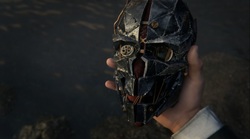 BETHESDA AND ROCKSTAR: SEQUEL MANIA Bethesda had a nice showing last year in their introductory keynote at E3, spilling the beans on DOOM, Dishonored 2, and the extended Fallout 4 presentation. Given the excellent news that Dishonored 2 is coming in November, expect that to be the belle of the ball, with perhaps a bit of news on their next Elder Scrolls game. If the latter object is still running on the same engine Fallout 4 was, it'll be hard to get hyped for another venture with that rickety rickshaw. Rockstar is rumored to have someting special to share, and if they do indeed have their own press reveal, they'll probably show off the internet's worst kept secret: a Red Dead sequel/prequel (depending on how you decipher the leaks). Having played a bit of the last one, it'll be nice to finally have a Red Dead game that doesn't run like absolute dogshit on a modern console; GTAV showed us that Rockstar is finally capable of nailing down solid framerates, so I'd be the first to jump on the Marston horse if we do indeed get another crack at their cowboy game. Oh, and Mafia 3, I guess. Disappointment Probability: Very low to virtually nonexistent for both. Dishonored 2 will likely look incredible and anything Rockstar has on their plate will be golden. 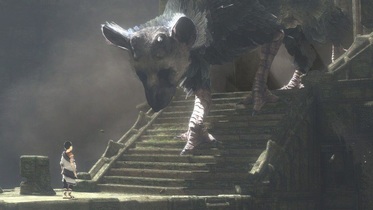 MICROSOFT/SONY: MEET THE NEW CONSOLES / SAME AS THE OLD CONSOLES The big elephant in the room here is the PS4K plus whatever the hell Microsoft's answer will be. How will early adopters to the PS4 take to the supposed upgrade of their console mid-stream? Is the XBone getting something similar? It's going to be a potentially funny and disastrous reveal, but that's all we have to go on for now. We're approaching this show post-Uncharted, post-Quantum Break, and post-dream scenario via FF7/Shenmue/Last Guardian. I'm not really sure what's next for Sony, other than showing us more of Zero Dawn or assuring us of the release date of Last Guardian? We're approaching the end of a cycle and entering a new one filled with Final Fantasy shit and some Deus Ex previews for August. I heard some rumors about a PS4-exclusive Spiderman game that I hope to God is true, but I won't hold my breath. As for XBone, expect more parity to come with their Windows 10 schematic, shortening the gap between their PC and console gameplan. Hell, I've been enjoying Killer Instinct on my laptop just fine, so I'm all for things like Cuphead to make the leap to the Windows Store. Xbone never really blows me away with their presentations, so my level of hype regarding their offerings is pretty null--I don't care about Gears of War 4 or Crackdown. I'm open to being surprised, especially if it involves more happiness from our celestial baby, Hideki Kamiya, and his Scalebound project. Disappointment Probability: Moderate. These "new old console" iterations could easily be a poison chalice here, but this may ultimately be a wash and not really affect the playerbase (unless it promises Bloodborne at blistering 60FPS speeds). After 2015's wish-granted ragnarok from Sony, my expectations are in slight regression, but are not necessarily negative. With XBone, I'm decidely neutral as always. NINTENDO: SEE YOU IN 2017, KIDS Originally, I assumed Nintendo's presentation via Nintendo Direct would likely be the most important part of this year's show, if not the most important show of Nintendo's tenure in almost a decade. Coming off a system that suffered from a weak base yet offered a small wealth of treasures (3D World, Kart, Bayonetta, Smash, Splatoon, Mario Maker, Pikmin 3), Nintendo has to climb up from the ruins of a well-meaning but futile effort and show us that it's still relevant in a climate fraught with smartphones, tablets, and still-evolving consoles. The lid has been locked down tight on what exactly the NX will be, and we aren't quite sure how much more powerful it will be compared to its competition or the erstwhile WiiU. It recently came to light that not only will NX not show up at E3, but only the WiiU version of Zelda will be playable--and that's it for the show floor. While we're getting info much later in 2016 (probably Tokyo Game Show) to lead up to the March 2017 release, I can't help but feel like the company has sat out the entirety of 2016 (unless you count Fire Emblem Fates.) I was bitterly disappointed til I remembered Nintendo hasn't done anything relevant for me besides Fates in forever, so join me in pretending the company doesn't exist until November or something. Disappointment Probability: Likely High. I mean, unless Zelda does your taxes and gives you free milkshakes, it's gonna be a tough sell to bank your hopes on this one game. There are so many other good games coming out that it will be easy to simply not give a shit about an underwhelming Zelda--or Nintendo, in general--for the majority of this year. 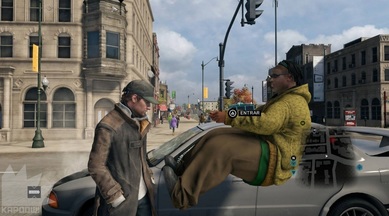 EA/UBISOFT: ZILLION DOLLAR UNDER(WATCH)DOGS EA, now that they have tanked Battlefront into a boring slog and finally did the Lord's work with a Mirror's Edge sequel, have little else to offer besides their big money baby: Mass Effect. I'm not expecting to see that much of Andromeda, but it sure would be nice if they gave us something to drool over when we aren't drooling from brain damage at the boring sports shit they preview. EA is actually straying away from the pack this year with their own EA Play event, held independent from E3 but still happening in the same 48-hour time frame. What are you plotting, EA? Dead Space 4? God, if only. Ubisoft has likely realized that they milked the cow for all its worth with Far Cry Primal and AC Syndicate, opting to take a break from both franchises at E3. Maybe we'll get another terrible Watch Dogs? Who knows, but what we do know is that both Watch Dogs and "play for 3 weeks then have nothing to fucking do" megahit The Division have set records in the past in terms of profit. This depresses the shit out of me because both games are terrible, mediocre shit. Ubisoft will, as usual, promise a bunch of shit while Aisha Tyler helps us all be ashamed to be watching this fucking conference. Disappointment Probability: Null and void. I've never expected ANYTHING from EA or Ubisoft, save for when EA had the good grace to greenlight Catalyst seemingly just for me. EA at least has some clout with a new Mass Effect on the way, but Ubisoft may have dug themselves even deeper into the "who gives a fuck" abyss with their new superstar skinner box The Division and a likely sequel to Watch Dogs on the way. I look forward to hearing about how their interesting projects--Wild and Beyond Good + Evil 2--have been cancelled. DARK HORSES / WILD CARDS The following are random games that don't necessarily have a single conference attached to them, but I hope to see more of them at some juncture at E3: Persona 5: This is a bit of a recent concern for me, given that I finally own a Vita and became hooked on Persona 4. Though I'm a little miffed that P5 will once again be a high school affair, more Persona is never a bad thing and I'll gladly play this one whenever it comes out (in fucking 2018 or so). I'd expect this to be more of a Tokyo Game Show thing, though. 13 Sentinels: Aegis Rim: I absolutely love Vanillaware. Muramasa is one of my favorite games ever, Dragon's Crown was a ball, and I can't wait to sink into the revamped Odin Sphere this summer. Vanillaware trying their hand at some kind of giant mech game set in the neo-future sounds like an amazing concept far removed from their usual swords and sorcery settings, but all we've seen is a tiny trailer from last autumn's Tokyo Game Show. All I need are some gameplay previews and I'm good with waiting until 2017 or so. No Man's Sky: How many E3s has No Man's Sky been at? It seems like its been around forever, but finally touches down slightly after E3 finishes. There's time for one last hurrah, which I expect to take place on Sony's stage given how much they've hawked it. Will the wait be worth it? Personally I love the idea of flying around and categorizing species while crashing into shit so this game could be a winner for me. Ruiner: Devolver Digital is screaming to life with a game that pretty much pisses all over Hatred's grody, uninteresting corpse and puts a Hyper Light Drifter spin on it. With an aesthetic that looks like it was pulled from a Queens of the Stone Age meets Deus Ex video and gameplay that may out-Drifter Hyper Light Drifter at its own plan, Ruiner could be a secret GOTY candidate much in the bloody vein of SUPERHOT. Allison Road: The successor to our dearly departed P.T. has not been forgotten, even if it kind of dropped off the face of the earth this year. Not a peep has come out of Lillith Ltd. since they got picked up by a bigger publisher in Team17 (the guys who do Worms) and I've been wondering how far along they've come since the excellent tech demo. Seeing anything about this title at E3 would be a massive longshot, but I can dream. Wild Guns Reloaded: A late addition to this list and one of the most pleasant surprises of them all, Wild Guns was originally an underrated classic for the SNES. Natsume has decided to reach up from the grave grasping the corpse of this forgotten gem, promising a remastered and retooled exclusive arriving on the PS4. Color me excited-as-fuck to peep this dream scenario resurrection. Resident Evil 7: Based mainly on the good word of the somewhat-dependable Serkan Toto, a Tokyo-based analyst and CEO of consultancy firm Kantan Game, Resident Evil is going to go "back to its horror roots" and will be partially designed by one of the dudes responsible for MGSV and P.T. To say I'm excited about this would be putting it mildly, especially because Capcom is gearing up for something big to launch early first quarter in 2017. Heavily Rumored Spiderman: It's just a rumor (possibly backed by the same guy who leaked info about God of War 4, as well as a motion capture artist's resume) but God damn I hope it's one that sees fruition at E3. Spiderman games have been in freefall since SM2 and Web of Shadows; seldom is something as fun as the webslinging physics when done correctly. Beenox has slowly but surely buried the game series into the fucking ground for years, even though its clear the concept is too good to just remain stagnant. Is Sony helping fund the dream scenario of a GOOD fucking Spidey game? Is this the mystery game Sucker Punch has been working on? This is probably the biggest stretch of the lot, but I haven't given up on a good Spider-Man game. ________________________________ E3, for all its bullshots and Lies: As Dictated By Todd Howard, is still a fun event for me every year. Games are fun, and this is a big dumb show all about them, so let's all be positive and keep basking in the great year that still isn't over. SEE YOU IN THE MOSH PIT, CHIPPIES. My first experience with Uncharted came at the tail-end of PS3's cycle, when I purchased one about a year before the PS4 came out and feasted upon all the games I didn't get to play for the last eon. One of my friends was generous enough to insist I dive into the Uncharted series--a system seller and a staple in the Sony library. The Last Of Us had not come out yet, so my exposure to Naughty Dog's new era was very limited indeed. At the behest of others, I skipped Drake's Fortune and moved on to Among Thieves. From the train crash onward, I was absolutely in love with what amounted to Indiana Jones made flesh in gaming form; the setpieces were amazing, the presentation fresh, and the graphics mindblowing. I enjoyed Uncharted 2 the same way I enjoyed Last Of Us: a huge experience that didn't easily worm its way into my head as a "must-replay" due to its journey's depth and overall gunplay being not as fun as you'd want it to be. Uncharted 4 is supposed to be the crown jewel of Sony's technical prowess--does it make the grade? Perhaps surprisingly, I don't have too much to say about UC4 in terms of the things it accomplishes; it's a big step up from certain pitfalls in the series due to new aim options, stealth play, grappling hook segments (which always make any game better), and even some nice vehicle levels. It's an Uncharted game for sure, and one that approaches the end of the line with tact and proper emotional resonance. All the loose threads of deus ex fraterna Sam Drake and the story of their origins are tied up nicely in a tale more grounded than the mystic bullshit of previous games, instead focused on a complex pirate utopia that predictably turns to hell. There's treasure, betrayal, flashbacks, and more crates than you can handle--this is Uncharted at its best, but it's also on a somewhat predictable leash. The problems I have with UC4 basically stem from familiarity, which in turn breeds contempt. I can't personally say I felt contempt, but rather a degree fatigue crept up as I limped to the last fourth of the game, followed by relief as I came to the closure. Climbing up cliffsides followed by a shootout followed by a box or rope puzzle bored me after a long while, but luckily the bigger setpieces (the getaway/rescue of Sam, the galleon invasion, the auction house) are just as memorable as the thrills I played through back in UC2. I was hammering the X button to rush through a few climbing segments near the end, as the only worthwhile part of those later missions came from staring in awe at the vistas and locations ND has crafted. This game has to be one of the most technically gorgeous, if not the most gorgeous, on a home console; there's really no comparing the way it looks to anything else in existence. How everything runs at a stable 30fps is beyond me, but I wish ND would share the wealth so we could get more quality like this on the PS4. I'm not sure how well Uncharted games stand the test of replayability, but there's quite a lot of treasure and collectibles to accumulate during the journey--and they're extremely well-hidden this time around. Although the treasures aren't that interesting, they do help towards your final endgame stats, which in turn give you points to spend towards skins, cheats, and weapons. ND was particularly generous this time, letting you buy a variety of stupid filters, infinite ammo, and almost any weapon with a pittance of the points given. You'll likely be able to afford anything you want after the game ends, and you can even select chapters based on each encounter within them--a huge deal, in my opinion. UC4 also ships with a multiplayer mode, which runs at 60fps and is actually quite fun. The matchmaking ain't the best, and death comes at a brisk pace, but the mad dash jumping and swinging around ruins while shooting up everyone as Sullivan dressed as Walter White is hilarious. Granted, it ain't gonna have anything on Overwatch or dedicated MP games, but it's a neat addition to the package that I genuinely like playing. Uncharted 4, in summary, seems like more of the same but to an insanely polished and revamped degree. There's nothing wrong with being "the ultimate Uncharted package," as Uncharted 4 by itself is a great game that absolutely deserves a playthrough. It does, however, start to slog whenever the action takes a break to enforce a box "puzzle" or very formulaic climbing; my memories of segments like the clock tower ascension outweigh the droll cliff descents. The gunplay, in essence, is still not the greatest in third person history. The strong suit of Uncharted is its well-balanced story and construction, doing multiple things very well while offering up the most sumptuous visuals you'll see this generation. It should be an essential play for anyone with a PS4, and being an essential game is no small feat for something that is tasked with closing out such a bombastic and adventurous series. 8/10 I'm pretty bad at XCOM, even though I bought a PS3 partially because XCOM: EU was the current free PS Plus game of that month and my current PC was incapable of playing the game. XCOM's newer titles encapsulate so many great things I love to see in tactical games: cover fire, overwatch, classes of soldiers, heartpounding permadeath, stealth segments, and blowing up buildings just to get to your adversaries. From a gameplay perspective, XCOM is my dream date--even if it brings a bouquet of tough-as-nails challenges and anxious failstates with it. One thing I really hated about the previous installment was how annoying it was to build up your base and maintain approval of all those whiny countries. With EU/EW, you could easily get to a point halfway where you know you're completely fucked, and heading into a very unwinnable in-game year of strife. With XCOM 2, these logjams and more have been rendered into more agreeable terms: a singular doomsday counter that can be continuously brought down, and can still be pushed back at the brink of Armageddon. XCOM 2 basically makes it possible to reach even the endgame state faster if you know what to do--and have the skill to pilot a team of suicidal fuckers into the fire. XCOM 2 goes about its gameplay a bit differently for one reason: the aliens have already won. Humanity, for once, has become the aggressor, the terrorist, the resistance. Missions are more about invasions and stealthy recons as opposed to area defense or patrols. The turf belongs to the x-rays now, and you'll often be pressed to quickly take down a target or disable a thing before the enemy sends in an insurmountable fleet of backup. Even in normal VIP rescues or base infiltrations, the aliens will call down for support a few turns in advance to warn you to get your ass back to evac. Unlike the previous outing, you can't just turtle with overwatch forever; you'll have to haul out and take insane risks to win the day. Instead of catering to needy countries all day, you'll be piloting your mobile fortress aroudn the globe gathering Intel for contacts, supplies for monies, and taking various missions which range from retaliation strikes to full-blown blacksite destruction. As the game goes on, a doomsday scenario called the Advent Project will gain pips on its meter, but you'll have constant chances to subtract from the countdown level and hold it off as you continue storyline-driven tasks. This is far more relaxed than the previous game's fail state, although it's still a stressful value to keep track of. The typical classes like "grenadier" or "sniper" have been redone into broader roles that actually give you a few new options for character growth. You could easily take the Sharpshooter class into typical sniper territory, or go the gunslinger route for free pistol takedowns or standoffs. You can turn the Ranger into a lithe executioner with an uber powerful sword attack, or a stealth-driven shotgun flanker. I also love the new Specialist drone driver, who can heal from a distance, shield comrades, and deliver guaranteed shock damage from afar. There's also the semi-hidden Psi Ops class, which is basically "Mewtwo with a rifle." I could go on about other little improvements and character options this new XCOM provides, but if you've seen the previous game then you already have a good sense of how the baseline will be with this one. The real kicker is how open XCOM 2 is for modding and editing, which has made all the difference in my playthrough. Not only can you import tons of great premade soldiers into the character pool (as well as create your own), but tinkering with things like the Advent clock's threshold or the amount of troops you can bring on missions is remarkably fun. I've enjoyed my time with this iteration of XCOM moreso purely because I can relax the failstate the clock or bring 10 fully loaded squaddies into a fiery fray. It's not for everyone, but the ability to morph the rules to be easier or harder to your heart's content and develop easy edits that Steam can subscribe to is wonderful. It makes sense that this is currently only a PC release, at least for me; I can't imagine going back to playing with every cosmetic or hard-coded element strictly on the default. And, I won't lie--the bigger squad numbers and longer Advent calendar (pun intended) make for a better experience for me. I'm sure if the opposite is your cup of tea, it's just as easy to change througH either the Workshop options or the easy .ini edits. XCOM 2 isn't without its flaws, though. Aside from the natural "that's XCOM, baby" hard luck chances of fucking up in combat, the overall performance of the game can sometimes suffer. I'm running on moderate settings and I usually get about 4o FPS, but sometimes things will chug at 20FPS if there's a shitload of flames and particles exploding around. It's not incredibly bad for me, though--it'd be more of an issue if this wasn't a tactical strategy game, and this is coming from someone who thought 25 FPS for Witcher 3 on PS4 was the worst thing imaginable. There are also moments where the animation will fuck up a bit, freeze for a few seconds to register, or offer baffling pauses between attacks for the sake of nothing. These bugs didn't happen at a horribly consistent rate during my first playthrough, though--and I have to admit that the game runs much better now that some patches have been pushed through. There's also a "Zip Mode" to hasten things up if you're getting impatient in a big firefight. In terms of physics, I'm still confused about how many times I've been able to shoot through smaller walls or corners, or get grappled by an Enemy from a weird angle. The cover and construction of most objects stays consistent, but there have always been very strange moments wherein I can shoot through a ceiling to get an enemy. Maybe that's intended with a magnet gun; who knows. Despite the performance problems here and there, XCOM 2 has been a huge step up from the initial reboot of EU/EW. Turtle gameplay has been mostly replaced with frenetic rushdowns, boorish upkeep for 15 countries is swapped with a "manage at your own leisure/danger" armageddon countdown, and the overall map diversity has greatly improved. I suppose it helps that it's also a bit easier for me since I'm not the best at constant micromanagement--having a few more squaddies available definitely helps things feel less stressful, though the challenge and rate of enemy reinforcements always keeps your nerves shot. As the invading force here, it's always going to be a slightly uphill battle, especially against blacksite bases and installations. I especially have loved the new and improved customization for soldiers, allowing me to add everything from Wolverine and Geralt to Deadpool and Tommy Wiseau to my character pool. The best thing about this is thanks to a recent patch that allows you to only draw recruits from this pool (until it runs out, at which point default randoms would start appearing), allowing you to wage your own kind of war with whatever weirdos you dreamed up. It's within this fun dollhouse option that makes me want to leap back into XCOM2 again immediately after finishing it. Having beaten XCOM2 for the first time, my opinion on it remains the same as it was even 30 hours or so in: it's a majestic work of tactical strategy, still the top of its class when it comes to this type of grid-based combat. It wasn't always the smoothest ride, and the difficulty can still quash you--but the customization, mods, and overall ease of choice you're going to get in XCOM2 has ensured it can truly work for everyone. That is a rare and a commendable thing, even when the dirt and grime of certain performance and RNG issues threaten to tarnish the luster. There's something for everybody, even in a world of totalitarian alien overlords. See you for the 2016 election! 8.5/10 SUPERHOT, in a few ways, reminds me of dearly departed P.T.--it started as a small yet fascinating alpha level concept that held infinite promise, if given the chance to accentuate on its style and substance. Unlike the unfortunate end to the best Playable Trailer of all time, SUPERHOT went on to garner a generous Kickstarter cycle and eventually see a full release. The game focuses on a kind of bullettime premise: nothing moves unless you do, effectively turning each scenario into a kind of sadistic John Woo puzzle. With everything stemming from this solitary yet unique take on slo-mo action, the game manages to bring forth an intensely satisfying experience and subvert expectation, all at the speed of snail. From the second SUPERHOT boots up, it presents itself as part of an odd metagame; you're on a crappy computer interface, complete with whirring and clacking drivers, miscellaneous apps and blips stuffed into a few folders, and even a primitive "hacker's channel" that looks like it was pulled from the 90s. The main game begins once you have a faux-chat with one of your "friends," who patches you into a super-secret .exe called Superhot. From there, you are beamed into a wild mix of Videodrome, VR, Matrix effects, and possible cybercrime. The overall story, while nothing completely groundbreaking, is incredibly entertaining for how it makes you feel like you're playing something forbidden. More than once, SUPERHOT will poke and prod at your immersion to ensure you don't forget that this is a game within a game computer interface. Although you're probably familiar with how bullet-time works thanks to landmark games like Max Payne, the first-person gameplay of SUPERHOT has more in common with Hotline Miami--if Hotline Miami only let you see what was in front of you, and the concept of time was stretched to a crawl. Moving slowly and deliberately enables you to see muzzle flashes at their base instant, dodge the red-accented bullet trails, and predict trajectory of both the glassy Red enemies and their weapons. Time only moves as fast as you do, promoting that patience isn't just a virtue--it's your means for survival. However, going the route of daredevil--especially in time trials--is valid, providing that your swifter punctuated moments can be backed up with a bullet. Faster actions like jumping or throwing objects can be useful, and it's especially cool how everything you can utilize is outlined in black as opposed to the crimson hues of incoming bullets and enemies against the icy white backgrounds. There's no other way to describe throwing a pool ball at a shotgun goon, distracting him long enough to skirt across the bar to slice him with a katana while easily dodging an auto rifle's salvo in time to impale him on the thrown sword other than "fucking awesome." The engine allows for so many solutions just based off the simple "hit, pick up, throw, move, jump" ethos, and the ease of access ensures you'll be disarming and destroying Red troopers in no time. You'll need to master your powers quickly, as the 30-odd levels in the main story will take you to some snazzy setpieces and hardcore situations. One of my favorites in particular was a short yet bitterly sweet stage wherein you spawn in a cramped elevator with three guns pointed at your head. Even if you get past the goons, the elevator dings open, and a man with a shotgun is waiting to spray you with a cone of pellets. Another was a recreation of the foyer battle from Matrix Reloaded, complete with sword baddies. You're going to notice some elaborate homages to cinema, and more than a bit of inspiration from Cronenberg classic Videodrome. After each massacre, the scene replays at normal speed to show you just how incredible your run truly was. Even nicer is the option to save a replay and upload it to a dedicated offsite known as Killstagram, enabling you to share your wildest runs with others. After the psychotic 2 to 3 hour storyline has finished, Endless Mode, Challenge, and Freeplay for Story unlock. Endless is just that; fight impossible odds for as long as you can across a variety of arenas. Challenge Mode is a bit more fun, giving you modifiers across a huge set of missions. Can you complete story mode while just being able to use the katana? How about only melee, or at only regular speed? The lifeblood of SH lies within continuously challenging yourself with speed runs, crazier stunts, and new ways to tackle tasks you probably saw were improbable. It's difficult to quantify why I felt SUPERHOT was so crisp, complete, and excellent even when I was just an hour into the game. It's an experience trimmed free of bloat and excess fat, presenting a lean and limber fight while throwing in a fun metatextual package around the product. It's not very often that the content for something is JUST right without wearing out its welcome or leaving you wanting more. In the case of SUPERHOT, I do actually want more, and I expect the continued challenges I unlock plus the free updates the developers have promised will continue to satiate me for a decent roll of time. In the same way people felt about tiny yet illustrious jewels like Hotline Miami, Gone Home, or Frog Fractions, SUPERHOT is a stellar example of marrying style and substance in an especially deadly and addictive way. It's one of those instances wherein you remember that this medium is quite young, and can still hold very pleasant surprises. 10/10 ______ Darkest Dungeon is a 4-slot position-based RPG wherein you are tasked to continuously send frightened explorers and warriors into nightmarish wealds and slovenly brackens, with the sole purpose of rebuilding your ancestral home back up, brick by bloodsoaked brick. Your chosen party members and reserves are not hired and outfitted with the expectancy that they will live for the 90 or more times you dive into another excursion--this RPG is roguelike in nature, meaning death is not only expected, but it it imminent if you wish to fight through most of the tougher bosses. In sacrifice, there is radiance--your stressed-out heroes have equal chance to find either middling madness or courageous zeal. As a bitesize roguelike, Darkest Dungeon will have you sending 4-person parties consisting of a handful of diverse classes and skills into horrid ruins, with the aim usually to do something like exploring 90% of an area, fulfilling all room battles, or slaying a boss enemy. In battle, there's a quaint selection of status ailments, movement shuffles, debuffs, and heals to be slung about, varying depending on your characters. But, there's also the element of Stress--a value that increases or decreases depending on how dim you keep the torch you bear, how many sickening critical hits you take, or what ailments and entrapments envelop each characters. At the edge of Stress lies the maw of madness; a Fearful hero may skip turns, while an Abusive one may hurt itself or berate others with increasing Stress. On the flip side, some characters will have the chance to rise up, becoming stronger and wiser as the tide of the fight turns. This singular feature alone is a wonderful addition to the RPG formula, and adds a lot of strategy to the scope ahead, as well. It serves not just as a thematic difficulty weight, but to also insure you consistently play with and utilize a variety of different teams and playstyles. it's quite a brilliant way to put forth the idea that each encounter with the unknown and the eldritch has a palpable effect on your poor adventurers, thus necessitating a visit to the bar or an internment at the medical asylums between missions. When you aren't imploring your mercenaries out to the evil realms, you're constantly upgrading your haven. Early on in Darkest Dungeon, the focus is less about your adventuring roster and more about preparing your former hovel to a battle-ready home. Eventually, you'll be able to not only pay less for cures and heal more people effectively, but outfit leveled characters with better armor, weaponry, and buffed skills. As upgrades grow and characters get stronger/better, so too does the knowledge of how to better tackle traps, examine weakness of each enemy type, and formulate teams with synergy. It's an expertise that comes with both time and effort, since your stronger teams will not likely emerge until a few areas in your town are updated permanently. In this way, I've found this game much more accessible than other roguelikes like FTL or even Binding of Isaac, which gave you more options on each playthrough but did not guarantee what you could carry on. In Darkest Dungeon, even if you manage to wipe out your entire roster, the progress made in your village will ensure that the following adventures you have go by smoother due to the capability to actually upgrade stats cheaper and faster. Thematically, Darkest Dungeon is beyond excellent; from the initial mood that narrator Wayne June dregs up like a thick fog of horror, the grim resolve permeates everything that is said and done throughout your journey. The notes and quotes of your ancestor litter each major boss fight's foreword, and with every strike and discovery there's a notation of victory--or defeat. Rarely is there something so notably incomprable when it comes to presentation, but the narration here is so enjoyable. Equally enjoyable is the fantastic art style, a kind of Gory/Mignola mashup that isn't quite hyper-real but still manages to be unsettling and shadowed with something sinister. A great many monsters are legit gross and abhorrent, which goes a long way at encountering some of the more disgusting bosses and knowing you're in for quite a match. I'm not a roguelike guy at all--I've never even come close to beating stuff like Isaac or FTL or even Invisible Inc, much as I love those games and enjoy their mechanics. However, I've clicked with DD mainly because the "failure" of losing characters, even after a great many victories to build them up, doesn't cause me pangs of extreme grief. I am not the character--I am the descendant, and the township is my legacy, not the life of the mercs. This format allowed me to accept that the future excursions would become less fraught with peril, although the threats and stress therein will always consistently provide some sort of challenge. It's that roguelike everyone has where you can put 100 or so hours in, doing convenieently menial or repetitive tasks yet always curious what's next. What team composition can I try next? What lurks beyond that threatening curio on the map? Which quirks and diseases should I heal--or spend a fortune to lock? When it comes to "that bullshit rng" claims--I have to laugh, as this is no different from any rogue/rpg/etc. The real elements of distress and fear of death are what seperate this from most smaller roguelikes, though this game's really no different in handling RNG-based tragedy than Fire Emblem or XCOM--both games that I love. Sure, there was rarely a boss that I beat without a significant death from my team, but again--this is a slow march towards getting better and building smarter. Death is inevitable as you climb closer to the zeniths ahead. As far as options go, for those who are not a fan of systems like enemy corpses affecting slots or heart attacks making stress potentilaly more taxing, the devs have chosen to give normal runs the ability to switch those features on or off. I admit, at first I found those features a bit overwhelming--before I began paying attention to the upgrades that would even the odds. I've played with all the normal features turned on since and never felt like they hindered me immensely. Darkest Dungeon has been a pleasure to play, from its early access inception to its ultimate released form. There have been stumbles along the way, particularly nerfs or buffs that made me initially think that the game was on very thin ice. However, Red Hook's willingness to be flexible with toggled options and updates have won my trust, and I've found that there was more advantage given to the player over time when it came to things like debuffs and movement options. That I've played almost nothing else the past few weeks since their latest flurry of updates and upgrades says a lot about how fantastic I think this stress-inducing, mind-melting jewel is. What I love most is that even at the lowest point, I've been able to start again and stronger than before--not just due to the progress of the town, but based on what I learned from each triumph and failure before. That, I believe, is the mark of an outstanding roguelike. I've stood gallant and fearless as my Vestal withered into madness, depending on the Leper messiah to slay the Formless Flesh--and cheering silently as he proceeded to hew through the horrid menace with a much-needed hit. I've seen my entire force slaughtered and boiled to bits my the malignant Hag, cursing my fortune and vowing to return in due time to turn the tables on the morrow. I've watched entire parties crumble, only to rally around one lone Crusader who decides to get Focused at the peak of his stress. And I've accepted defeat at the maw of the malicious Shambler, foolish in my confidence that my rank 1 group could possibly outwit the Lovecraftian beast. DD is as much about the stories and failures gifted as it is about slowly accepting your knocks and eventually besting the opposition. It's a marvelous, wicked game, worthy of at least a try if this relatively simple creation interests you. Red Hook has potentially created a masterpiece of the genre. The match has been struck; a blazing star is born. 9/10 |
The HitboxAmazing and topical! Archives
February 2019
Categories
All
|
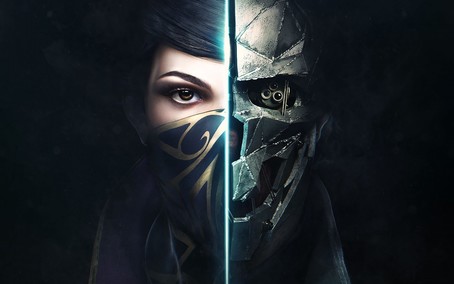
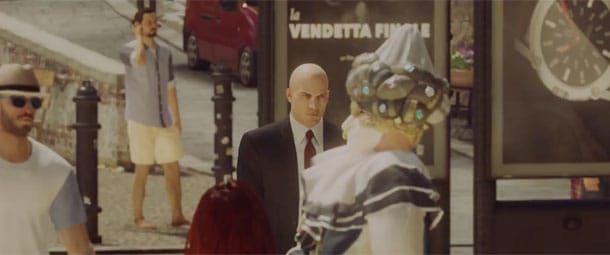
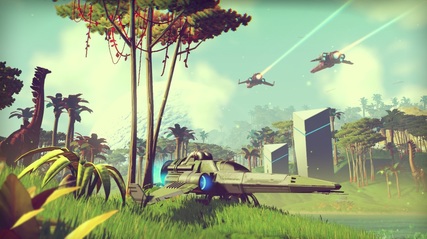
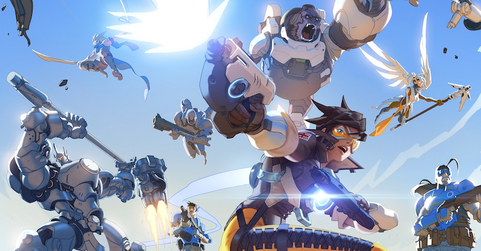
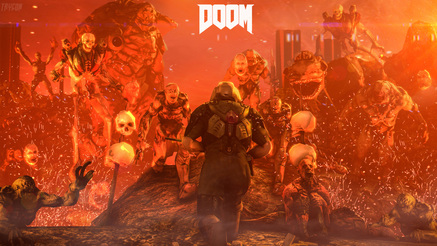
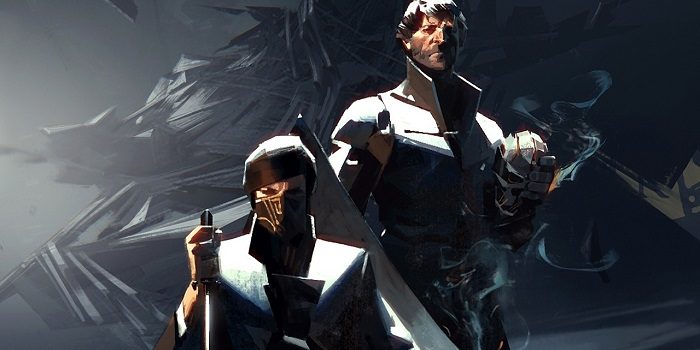
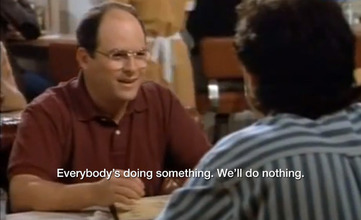
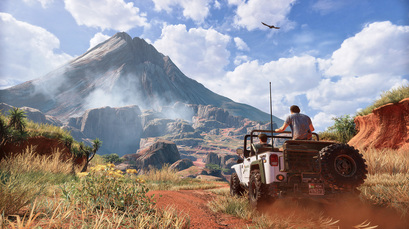
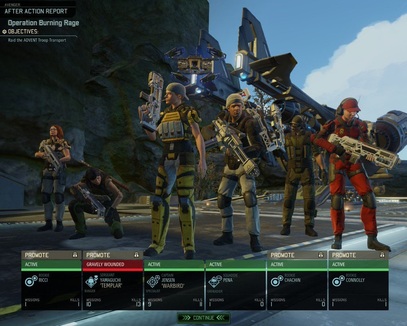
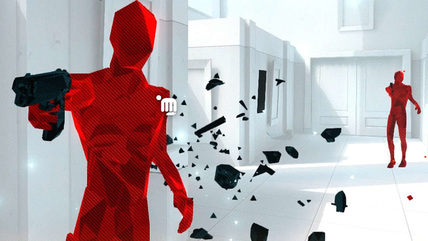
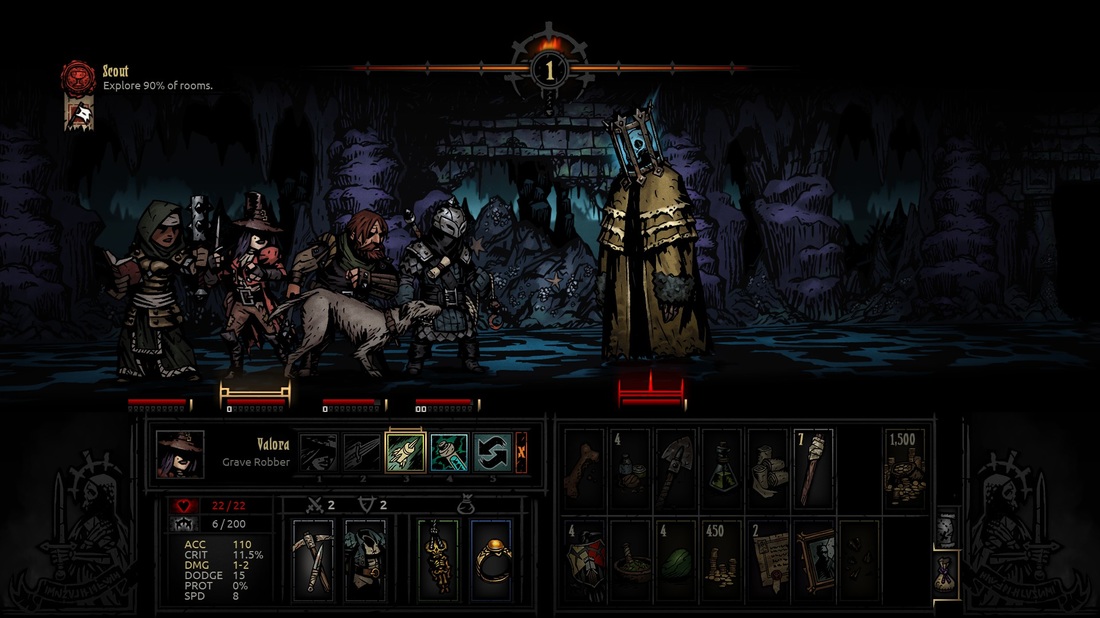
 RSS Feed
RSS Feed
